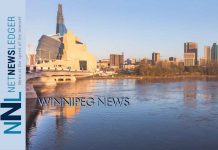THUNDER BAY – As we are witnessing globally, human rights matter. The treatment of our fellow citizens is not equal. Across North America, and right here at home we have seen that inequality raises its ugly head far too often.
In Ontario, we have seen how different races and cultures receive, despite the idea somehow that still seems common, that Canadians are not biased, that the level of racism and prejudice is still far too high, and far too common. It can be seen in how people talk about people who are different from themselves. It can be witnessed in how cities can ignore culturally significant symbols and events.
The issue extends across Ontario as the Ontario Human Rights Commission has just released “People, power, progress”, its 2019 – 2020 annual report. The report highlights the OHRC’s work to advance human rights on key issues in communities across Ontario.
“Now more than ever we are reminded of the importance of the OHRC’s work,” said Raj Dhir, OHRC Executive Director and Chief Legal Counsel. “The OHRC’s focus on people’s lived experiences, engaging the power of the Code and promoting progressive change were the factors in our success in the past year, and have placed us in an excellent position to continue to be a leading voice for human rights across Ontario.”
People, power, progress details the change that is possible when the needs of diverse people are taken into account as required under Ontario’s Human Rights Code. The report highlights how the OHRC has used its statutory powers to develop policies, educate and raise awareness on human rights issues, conduct public inquiries and engage in strategic litigation in the public interest.
The report also shows the OHRC’s progress on a wide range of issues this year. Examples include:
- Taking the lead in offering cutting edge and timely human rights guidance to government, employers, housing and service providers as the COVID-19 pandemic swept across the country
- Addressing racial profiling in policing by (1) obtaining agreement on key principles to address racial profiling and launching a new Policy on eliminating racial profiling in law enforcement with police chiefs from across the province, (2) providing guidance and support to the Toronto Police Services Board on its race-based data collection policy, and (3) continuing the OHRC’s ongoing public inquiry into racial profiling and racial discrimination of Black persons by the Toronto Police Service
- Conducting a public inquiry into human rights issues that affect students with reading disabilities in the Ontario public education system, and investigating barriers that limit access to this fundamental skill
- Deepening relationships with the Community Advisory Group, and establishing four new advisory groups in Indigenous reconciliation, poverty, education and employment to get expert feedback, advice and practical perspectives on the OHRC’s work.








